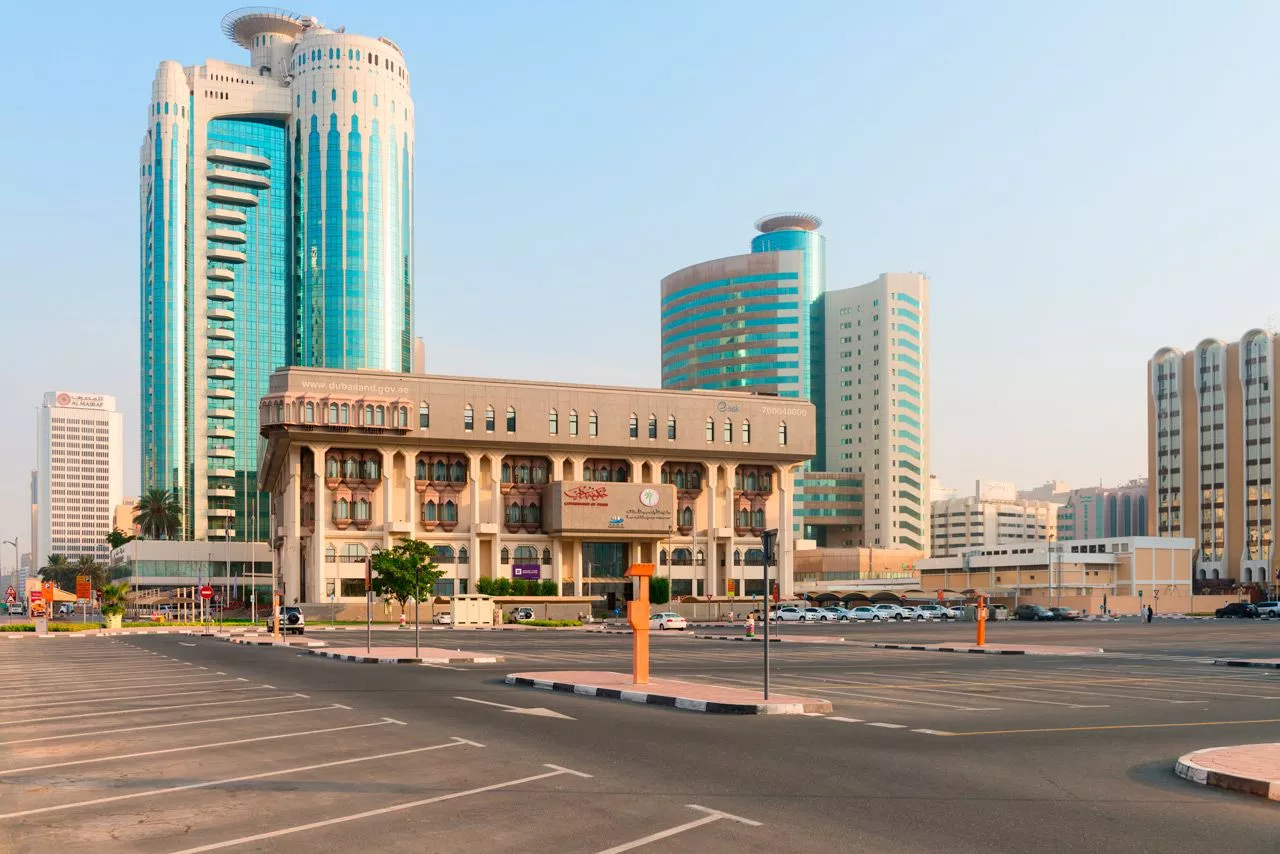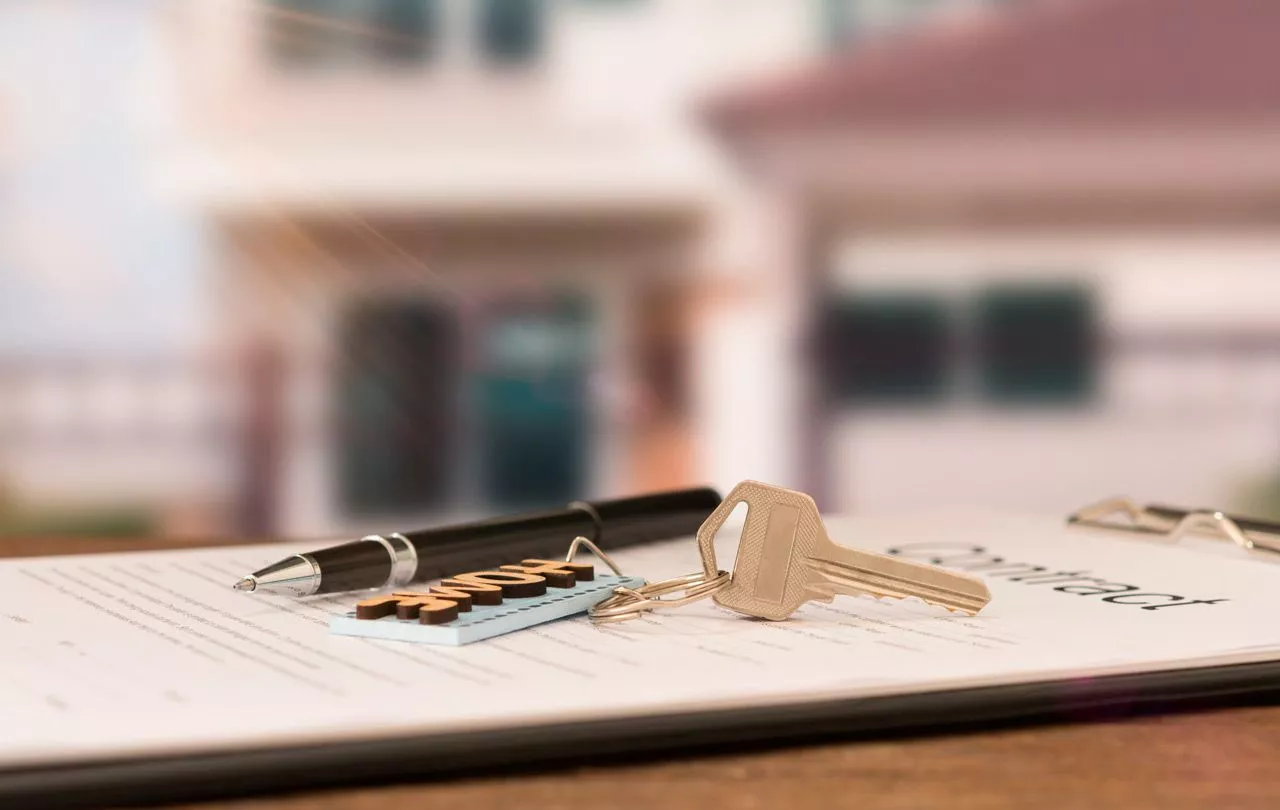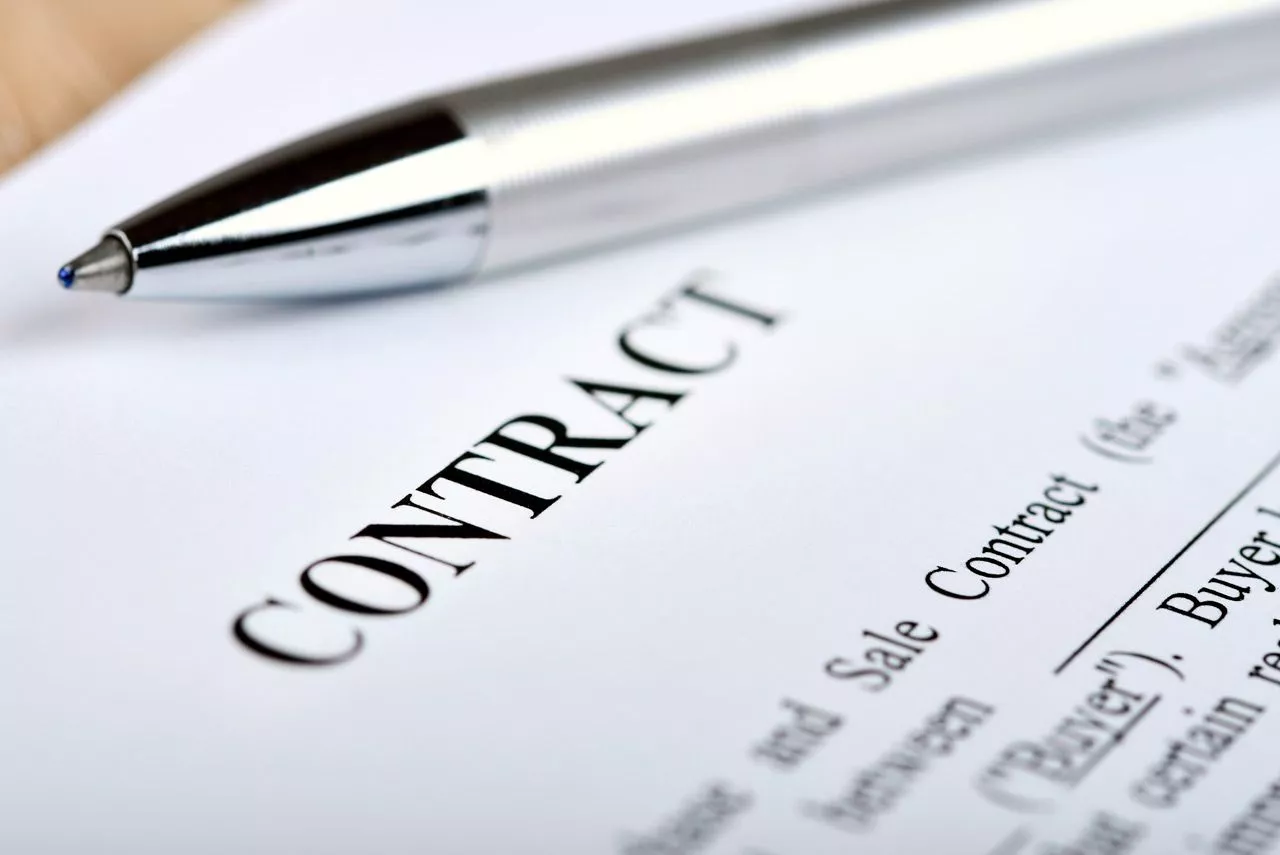Dubai’s Tenancy Contract Guide

The only important document regulating the rental market in Dubai is the rental agreement. Understanding the intricacies of leases in Dubai as well as the rights and obligations associated with them, can help avoid much confusion and litigation for both the tenant and the property owner. We have prepared a handy guide that aims to provides detailed information about a lease agreement in Dubai regarding the terms, rights and obligations of both parties.
What is a tenancy contract in Dubai?
A tenancy contract is a civil-law agreement, which is concluded between the lessor and the tenant in order to establish all parameters of the transaction. The contract specifies the cost and term of the lease, payment terms, the liability of each of the parties in the event of a breach of the tenancy agreement, as well as any additional costs and the distribution between the two parties. Both parties can apply to judicial and governmental authorities to protect their interests in the case of disputes, only in the existence of a tenancy contract which is officially registered. If the tenancy contract is concluded for a period of less than a year, it is considered a short-term tenancy agreement. The advantages of short-term rental of real estate include a daily, weekly or monthly payment, easier conditions for terminating the tenancy contract (without a fine of two months’ rent) and a non-compulsory registration of the contract in Ejari.
Where to download the tenancy contract in Dubai?
Back in 2017, Dubai Land Department (DLD) announced the release of the Uniform Lease Form, which is a standardized lease form for all types of real estate (residential, commercial or industrial). You can download it from the official website of the DLD or download it via the app; Dubai REST. The tenancy contract in Dubai must contain standard and unchangeable terms in English and Arabic. Landlords and tenants can add special conditions to the contract such as a set price for repair inside the apartment, mandatory payment of a penalty in case of early termination of the contract, and so on. Note! A rental agreement in Dubai only comes into effect after registration in the Ejari system. You can quickly register your contract using the Dubai REST mobile app and check the status of your request under “My Requests”. Also, keep in mind that you should do it within a month from the date of signing the contract, otherwise you will be fined. The renewal of the contract is a standard procedure that is performed each time a rental agreement is renewed. Also, since an Ejari registration does not have an expiration date, it must be canceled under the condition that the lease expires at the end of the term or in the event of early termination of the lease.

What are the tenancy laws in Dubai?
There are several basic laws in Dubai regarding rental housing. The first of them is Law No. (26) of 2007, which regulates the relationship between lessors and tenants. For example, Article 6 of this law states that the rental period can be automatically extended for a certain period of time on the conditions already agreed upon if the tenant continues to rent the property closer to the expiry of the tenancy contract so long as the landlord has no objections or complaints. In 2008, Law No. (33) was issued, which made some changes to Law No. (26) of 2007. According to this law, registration of the tenancy contract in the Real Estate Regulatory Agency (RERA) through the Ejari system is mandatory. Due to the official registration in this system, the same property cannot be rented twice at the same time. Decree No. 26 of 2013 established the Rental Dispute Resolution Centre (RDC), which handles all types of rental disputes through court or arbitration. In addition, the RDC also handles appeals filed against rulings and decisions under the provisions of the Decree and the regulations issued thereunder There is also a separate law for the regulation of rents. This is Law No. (43) of 2013, according to which, there are various limits on the maximum rent increase for a property, depending on the current average rental price. You can read these figures on the RERA Index, which records the average rental price depending on the type of property and its location. You can calculate rents from RERA using the calculator on the official DLD website. You only need to enter data such as the term of the contract, the type and size of the property to be rented, the number of bedrooms and the current annual rent and the calculator will show you if a rent increase is possible. Note: Action Law No. (43) of 2013 also applies to DIFC and other free zones in Dubai (previously excluded). However, it must be noted that DIFC has its own rental laws, which include DIFC Law No.4 of 2007, which states that all other “Dubai Real Estate Laws do not apply to properties governed by this Law”, with reference to the DIFC Law.

The rights and obligations of tenants and lessors in Dubai
The RERA Rental Housing Act established a clear and strict separation of rights and responsibilities between landlords and tenants, which must be spelled out in the contract and can only be changed by mutual consent of both parties. For example, there are basic points that state the tenant has to pay for gas, water, electricity and air conditioning, and the landlord has to pay for security, cleaning and garbage collection. As well as the costs that can be changed – rent charges (reduction or increase in price), repairs, redevelopment, etc. The contacts of both parties are prescribed in the contract and in case of any changes (planned or not) they are free to contact each other.

The landlords rights and obligations in Dubai
<ul><li>Leased property must be in a good and livable condition. This is a direct responsibility of the landlord. But in some cases, the tenant agrees to rent an unfinished property and then complete it himself.</li><li>The landlord has the right to receive the rent from the tenant in a timely manner (*).<br> The landlord may request a security deposit (5-10%) as insurance against possible damage to the property. The deposit is returned at the end of the tenancy contract if the property is handed back to the lessor in the same condition as it was transferred to the tenant, except for normal wear and tear on the furniture or damage beyond the control of the tenant. If there are disagreements, the parties can contact The Rental Dispute Settlement Centre (RDC).</li><li>The owner is responsible for all repairs in case of damage and/or defects and is responsible for payment of maintenance fees, unless otherwise agreed.</li><li>If the property is resold, the landlord must notify the tenant in advance. If the resale has already taken place, the new owner does not have the right to evict the tenant if the contract has not yet expired.</li><li>Regarding rent price increases, the owner can do so only if the RERA Price Index increases. In this case, the owner must send a written notice to the tenant (at least 90 days in advance), and if the other party agrees to these conditions – to make them in the contract and legalize them. If not, then both parties can come to a compromise and stipulate this point before the contract is renewed or challenge it in court.</li><li>Also, at the time of eviction, the owner must return the tenant the full amount of the deposit, or a portion thereof, including a deduction for breakage or damage.</li></ul>
Note (*): At the stage of discussing the parties’ obligations, it is possible to determine in advance under what circumstances it is possible to delay the payment of rent by the tenant and under what circumstances it is not. This may include delaying the payment of rent for residential real estate if the tenant has force majeure situations, such as loss of work, the occurrence of a serious illness, ect. In the case of commercial real estate leases this could be, in the event of emergency circumstances or a failure of the market mechanism.

The tenant’s rights and obligations in Dubai
<ul><li>The tenant has the right to receive the property in a habitable condition. If this is not the case, you can ask the landlord to fix and address all the issues before you move in, unless the contract states otherwise.</li><li>The tenant has the right to full use of the property. If the property passes to the new owner (landlord) before the tenancy contract expires, the tenancy contract does not terminate and the tenant can legally reside in the rented property until the expiration of the lease term. It is recommended to update the details in the Ejari system in order to avoid possible disputes in the future.</li><li>The tenant is prohibited from making any changes to the layout or interior of the apartment without the owner’s consent. He/she is also obliged to notify the other party of their plans or suggestions 90 days in advance. However, you should be aware that there may be cases where the landlord can only agree for temporary changes, and at the end of the rental term, the tenant will be obliged to return the accommodation to its original appearance. All decisions on these matters must be included in the rental agreement and formally legalized.</li><li>Tenant’s must also cover the cost of repair work to the extent of AED 500 (USD 136).</li><li>The tenant is obliged to pay the housing fee. This is a municipal fee of 5% of the annual rent. This fee is charged by the Dubai Electricity and Water Authority (DEWA) in equal installments throughout the year, together with payments for the electricity and water usage.</li><li>The tenant must be officially informed in writing if there are any changes to the tenancy contract at least ninety days before the contract expires.</li><li>Regarding the transfer of the dwelling upon eviction, the tenant must return the property to the landlord in the same good condition in which he/she had accepted it, except for the allowable wear and tear of the property.</li></ul>

Important tenancy contract clauses one must remember
<ol><li>The tenancy agreement may not be unilaterally terminated without the permission of the other party unless otherwise agreed upon. If the lessor wishes to terminate or modify the tenancy contract, the tenant must be notified in writing 90 days prior to the expiration of the contract.</li><li>All lease addenda are required to be registered with RERA through the Ejari system, as is the lease itself. Otherwise, you will not be able to defend your rights in court if a dispute arises.</li><li>Even if the tenant/landlord dies, the contract continues in effect until the legal term expires. In this case, it passes to the direct heirs, who decide whether to continue renting or to terminate the contract. In the latter case, the procedure will take only 30 days after one party gives notice to the other.</li></ol>
What details are included in a Dubai tenancy contract?
The standard format of a tenancy contract should contain:
<ul><li>Name and contact information of both sides of the contract.</li><li>Information about the property, including full address, building name, size, location, site number and DEWA number.</li><li>Agreed rental amount and amount of security deposit.</li><li>Date of tenancy and term of the contract.</li><li>Additional expenses related to the operation of the property and their distribution between the two parties.</li><li>Method of payment.</li><li>Liability of the parties in case of failure to fulfill the terms of the tenancy contract.</li><li>Both parties may, at their discretion, additionally agree on and make certain points concerning the accommodation.</li></ul>
Please note! In Dubai, it is customary to pay for rent by cheques with clear set dates. There may be several dated cheques (from 2 to 12) or one for the whole year. It is also worth paying extra attention to the fine print in the contract and make sure that you are satisfied with all the terms previously agreed upon before signing. If you are renting, double-check that all receipts are correctly dated. Also, make sure all meter readings are zeroed out and the owner has no utility bills owed at the time of signing the lease.

What are the documents required for a tenancy contract in Dubai?
The list of basic documents required to prepare a tenancy contract in Dubai includes:
<ul><li>Providing the original and a copy of both parties’ passports.</li><li>Proof of ownership document.</li><li>DEWA form and number.</li><li>Copy of Emirates ID card.</li><li>A copy of your residency visa or the original letter stating that your visa is being processed (without the visa, you will not be able to set up a DEWA).</li><li>Security deposit cheque (usually 5% of the annual rental amount for unfurnished properties or 10% for furnished properties).</li><li>Agent’s fee cheque (5% of the annual rental amount).</li></ul>
Who needs to sign the tenancy contract in Dubai?
In order to draw up a lease agreement and sign it, the key parties (tenant and landlord) must hire an intermediary – a real estate agent. The presence of the agent is mandatory or the contract will not be considered valid. After all points have been agreed upon, the contract is signed by the tenant and the landlord. If the owner is not able to be present, he/she can be represented by his/her legal representative with a POA power of attorney. Please note! The POA is valid only for two years. After the expiry date, the power of attorney must be recertified with the seal of the Dubai Court. DLD-licensed real estate companies, which they manage, have the same right to sign leases. An approved list of such companies can be found on the DLD official website.

Right to terminate the lease
In this case, it is only possible if it is the mutual consent of the parties involved or in accordance with the law of the Dubai rental housing (Article 7). There are only a few reasons for landlords to terminate a lease early. The most common one is late payment of rent. Article 25.1(a) of the Dubai Residential Tenancy Law gives a landlord the right to evict a tenant early. Also under Section 25 of Law No. (26) 2007 as amended by Law No. (33) 2008, the following factors may serve for early eviction:
<ul><li>Failure to comply with the terms of the rental agreement or the law within 30 days of receiving written notice from the landlord.</li><li>Use of the rental property for other than its intended purpose or for immoral/illegal purposes.</li><li>Illegal letting of the property.</li><li>Intentional damage to the property.</li><li>In the event that Emirate City Planning has decided to demolish the building.</li><li>In the case of industrial or commercial premises as well – if the tenant has ceased operations for 30 or 90 consecutive days without good cause.</li></ul>
As for tenants – under Section 31 of the Dubai Rent Act, when a tenant terminates a contract, the tenant will be required to pay for the entire period during which the claim is pending and until a decision is made and executed on the case.
Frequently asked questions
Here are some of the most frequently asked questions about tenancy contracts in Dubai:


